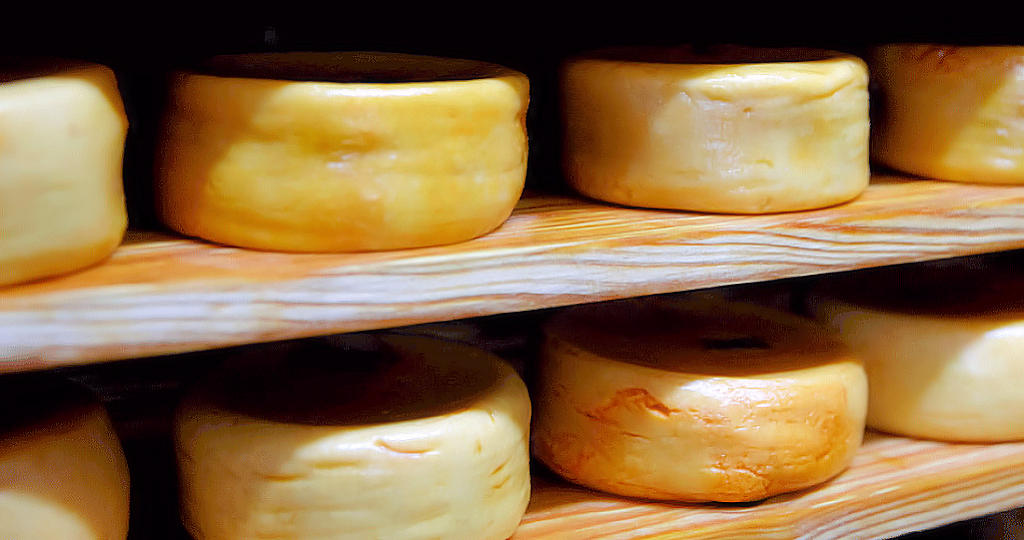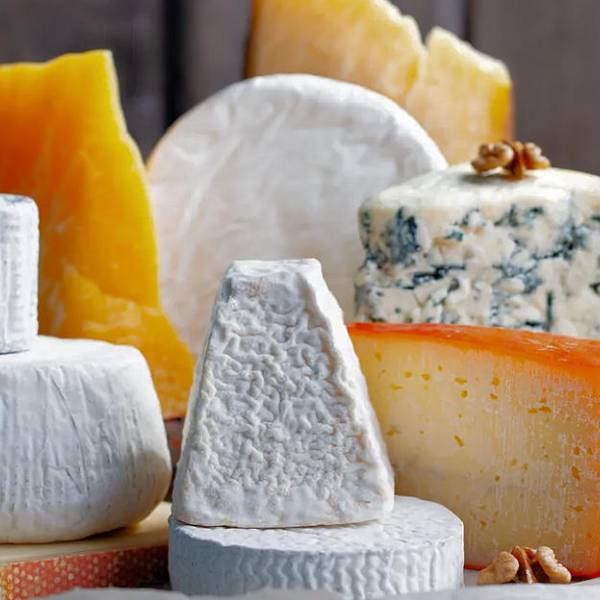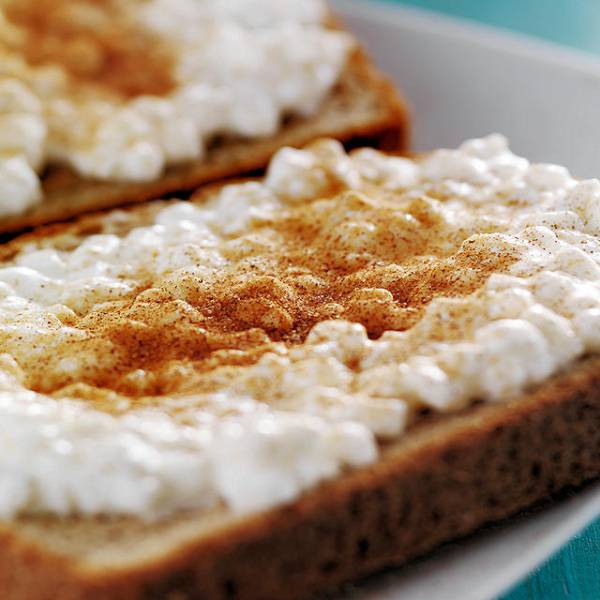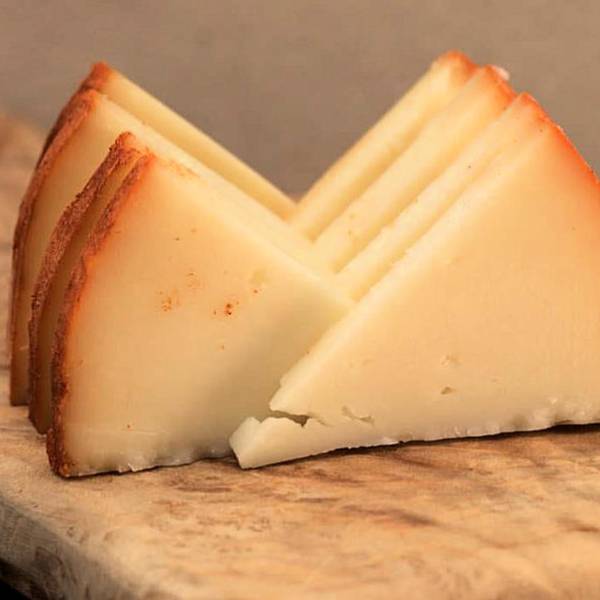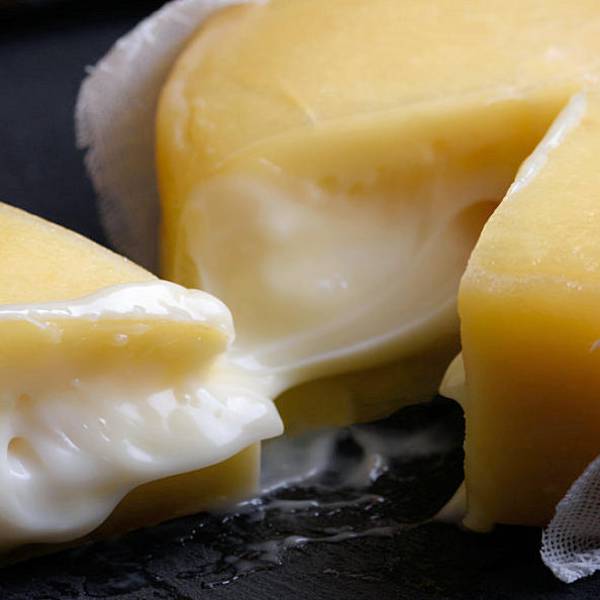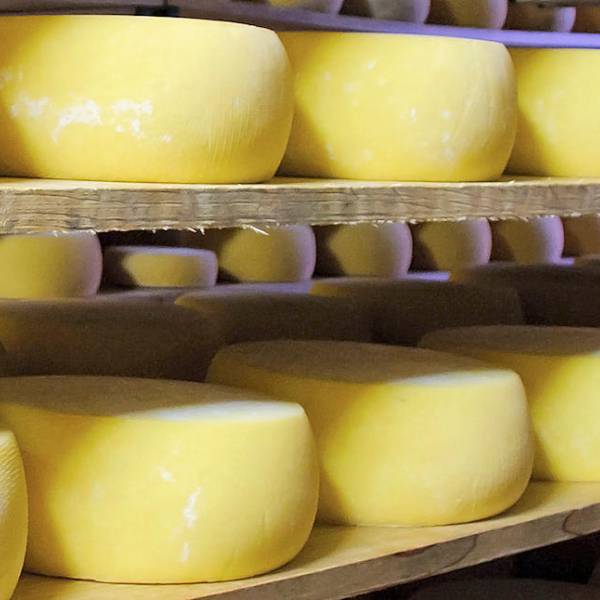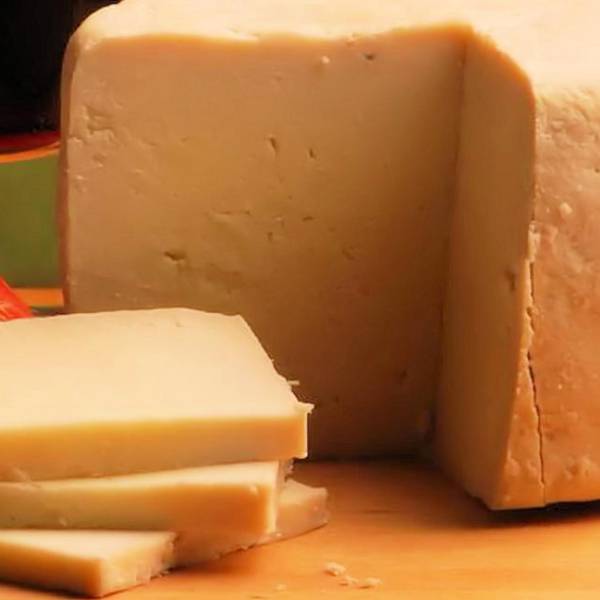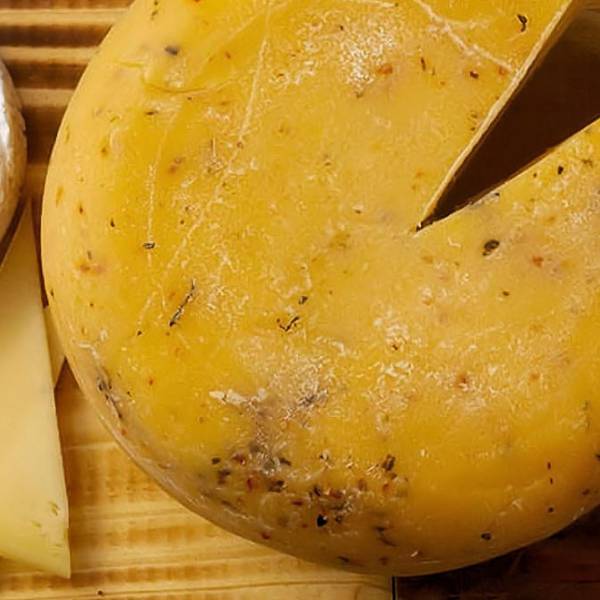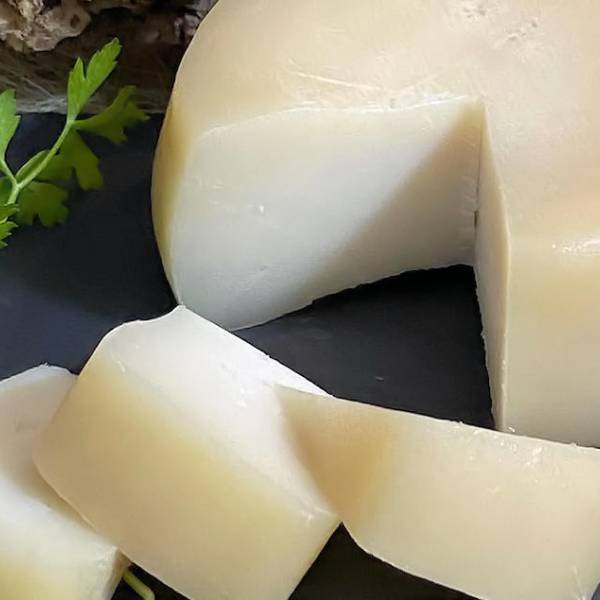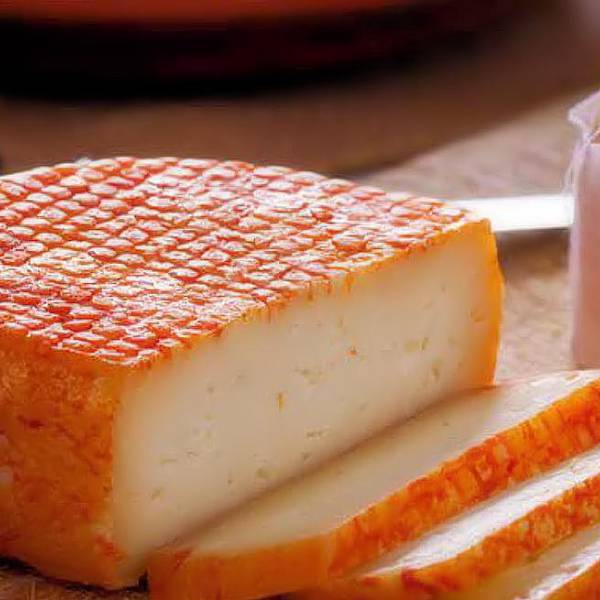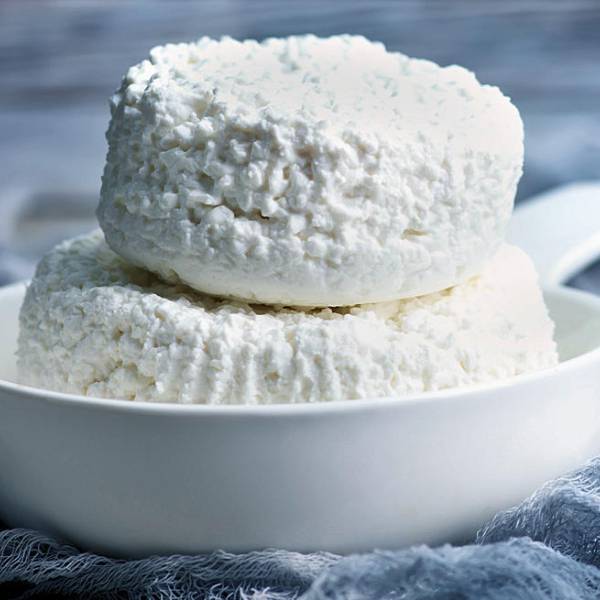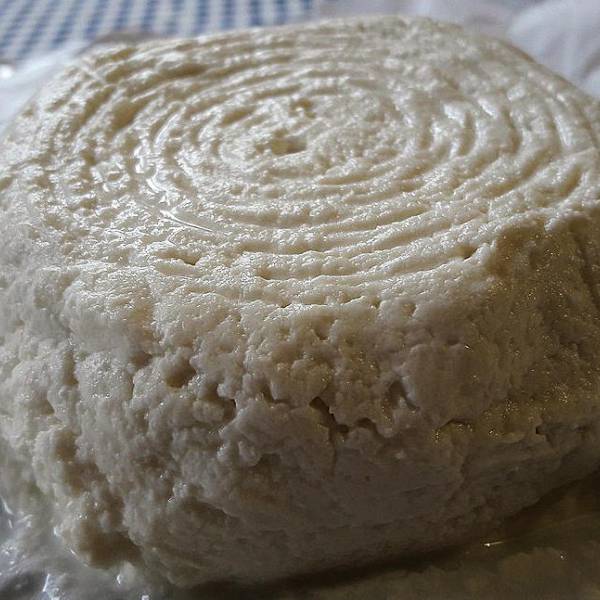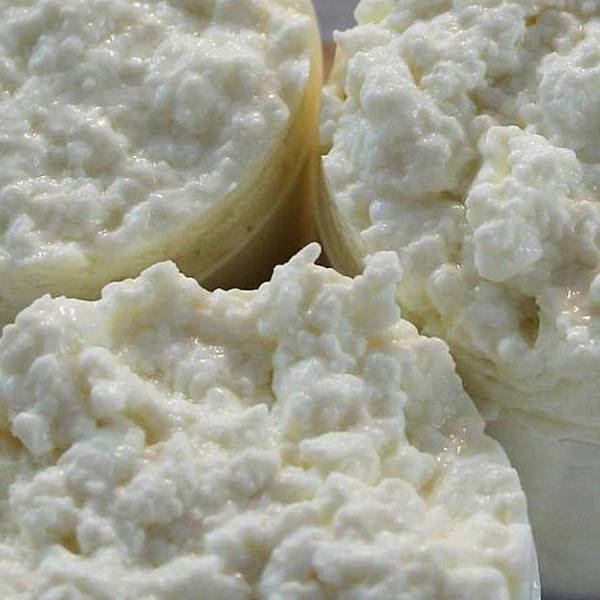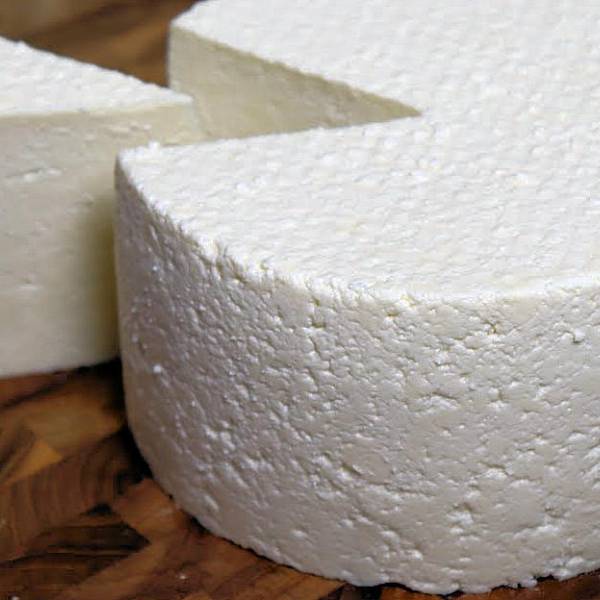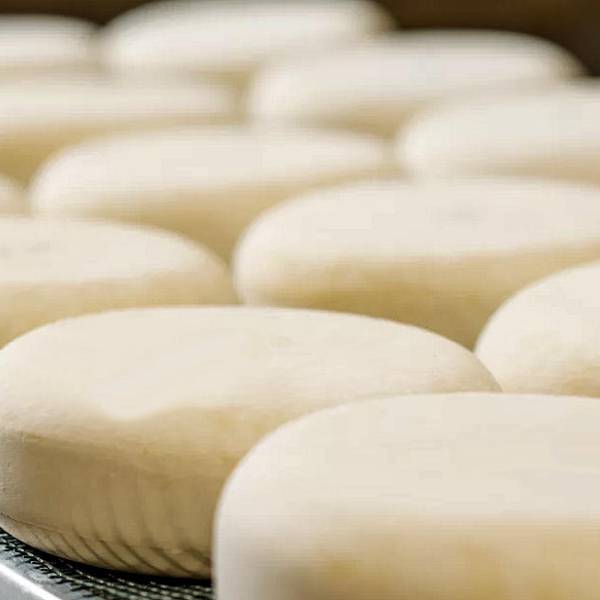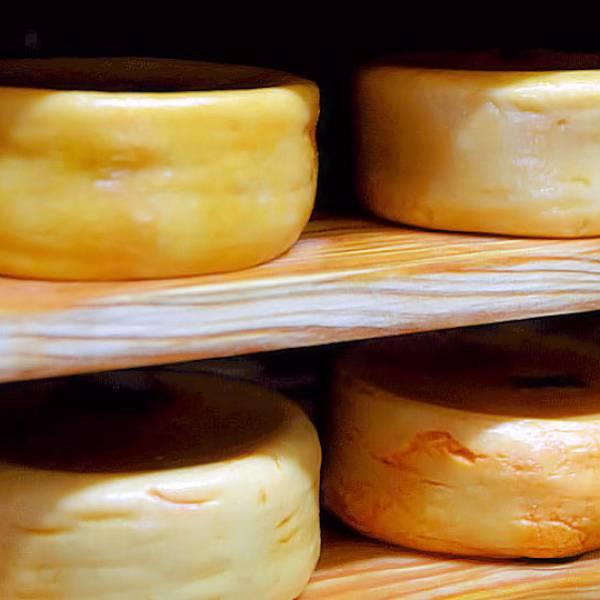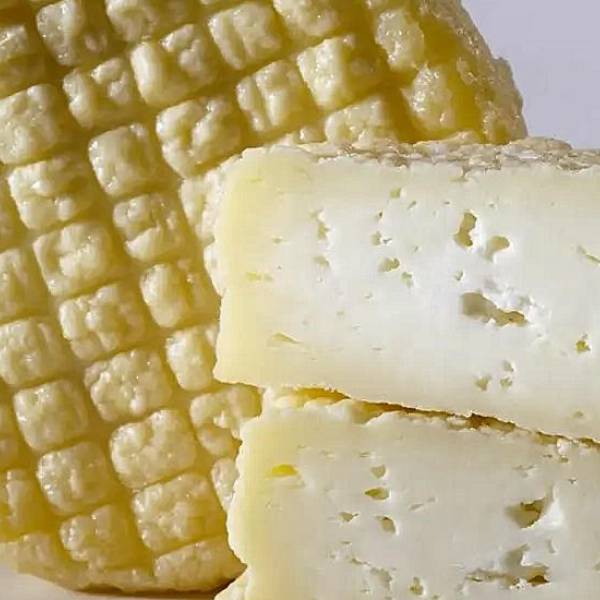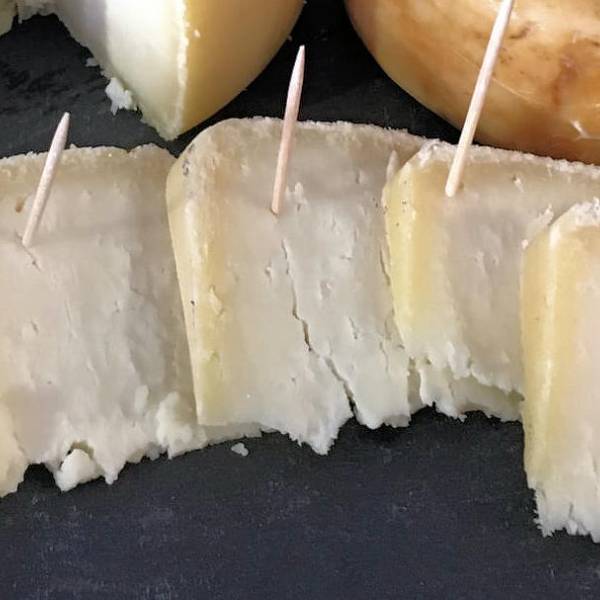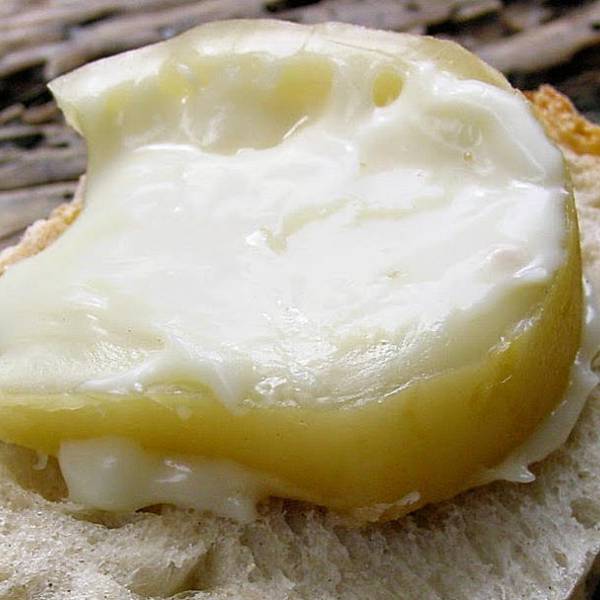The production process of Queijo de Nisa remains firmly rooted in artisanal practices, adhering to stringent regulations that safeguard its unrivaled quality and authenticity. Since 1996, the cheese has held the esteemed status of a protected designation of origin (PDO) by the European Union, signifying that it can only be crafted within a specific geographical area, using specific ingredients and time-honored techniques. The milk undergoes coagulation with a delicate infusion of thistle (Cynara cardunculus), a plant abundant in the region, imparting the cheese with its distinct flavor and alluring aroma. Once coagulated, the curds are gently drained, salted, and meticulously molded into round forms, ranging in weight from 200 g to 1300 g. These cheeses are then entrusted to the embrace of time, maturing for a minimum of 45 days in cold, humid conditions, allowing for the development of a natural rind that varies in hues from yellow to brown.
The result of this meticulous craftsmanship is a cheese with a firm yet delicately crumbly texture, adorned with a pale yellowish-white hue and adorned with small, irregular air pockets. Its flavor profile boasts robust notes, slightly tangy and nutty, accentuated by hints of herbs and delicate floral undertones. The aroma that wafts from Queijo de Nisa is both intense and distinct, evoking memories of the pastoral landscapes and the harmonious symbiosis between sheep's milk and thistle.
Esteemed within Portugal and revered by visitors from far and wide, Queijo de Nisa has garnered recognition as one of the nation's most treasured cheeses. Its exceptional qualities led to its inclusion in the revered Wine Spectator magazine's compendium, "Great Cheeses", an illustrious acknowledgment of its global distinction. Additionally, it has found a place in the esteemed catalog of the Slow Food movement's Ark of Taste, which endeavors to preserve endangered culinary delights that bear cultural and historical significance.
Lisbon.vip Recommends
Embracing the versatility of Queijo de Nisa, culinary enthusiasts can indulge in its magnificence in countless ways. Whether savored as a delectable snack or relished as an appetizer, this cheese adds an exquisite touch to any cheese board. Its harmonious companions include bread, wine, honey, jam, nuts, and fruits, all of which enhance and elevate its exceptional qualities.
Queijo de Nisa transcends its humble origins as a mere cheese. It is a living testament to the vibrant culture and storied history of Nisa and its inhabitants. It embodies the essence of a region steeped in tradition, where time-honored skills and an unwavering commitment to excellence have converged to create a truly exceptional culinary masterpiece. Queijo de Nisa is a cheese that intertwines history, craftsmanship, and distinctive character - a treasure to be cherished by those fortunate enough to experience its allure.


